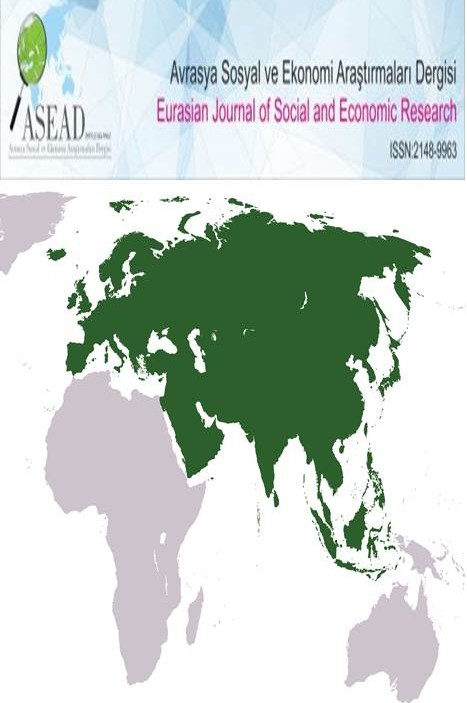THE IMPORTANCE OF ORGANIZING INDEPENDENT WORK IN CHEMISTRY LESSON
Independent work, Interactive teaching methods, Project independent research, Electrolytes, Metacognition.
___
- 1. Khorrami, F. T., Fallah, M. H., &Abadi, H. Z. M. (2015).The Effect of Unconscious Influences of Satellite Channels on Attitude of Using Satellite. UCT Journal of Social Sciences and Humanities Research, 3(1), 61-67.
- 2. In’am, A. (2015). Menguak penyelesaian masalah matematika (Analisis pendekatan metakognitif dan model polya)[Revealing solving mathematical problems (Analysis of the metacognitive approach and its pattern of models)].
- 3. Greenstein, L. (2012). Assessing 21st century skills: A guide to evaluating mastery and authentic learning. California: Crowin.
- 4. Gama, C. A. (2004). Integrating metacognition instruction in interactive learning environment.Sussex: University of Sussex.
- 5. Efklides, A. (2011). Interactions of metacognition with motivation and affect in self-regulated learning: The MASRL model. Educational Psychologist, 46(1), 6–10.
- 6. Abasov Z. (2007). Design and organization of independent work of students// Higher education in Russia. - No. 10. pp. 81-84.
- 7. Ptashinskaya, E. V. Organization of independent activity of students in the classroom as an effective means of improving its quality. Access date: 02.03.2023.
- 8. S. M. Bahisheva (2011). Pedagogical design: theory and technology. 222-224.
- 9. F. B. Buribekova, N. Zh. Zhanatbekova (2014). Modern pedagogical technologies: textbook. Almaty: 359– 360.
- 10. Markova, S.M. (2018). Perspective trends of development of professional pedagogics as a science Advances in Intelligent Systems and Computing, 622, pp. 129-135. https://doi.org/10.1007/978-3-319-75383- 6_17
- 11. Ambreen, S., & Conteh, J. (2021). Children’s interactions in ability-based groups in a primary classroom. The European Educational Researcher, 4(1), 85-86. https://doi.org/10.31757/euer
- 12. Lieven Verschaffel. (2019) Learning Mathematics in Metacognitively Oriented ICT-Based Learning Environments: A Systematic Review of the Literature. 16-17. https://doi.org/10.1155/2019/3402035.
- 13. Metody metapoznaniya [Elektrondy resurs] https://skillbox.ru/media/education/metody- metapoznaniya-kak-nauchit-uchitsya-detey-i-vzroslykh/. Access date: 10.03.2023.
- Yayın Aralığı: Yılda 4 Sayı
- Başlangıç: 2014
- Yayıncı: İrfan TÜRKOĞLU
DESIGN AND RESEARCH ACTIVITY OF STUDENTS AS A PEDAGOGICAL PROBLEM
GRAPHICS CAPABILITIES IN PYTHON
Gulnur ABDİMANAPOVA, Lazzat ZHAİDAKBAYEVA, Sapargali ALDESHOV
THE IMPORTANCE OF ORGANIZING INDEPENDENT WORK IN CHEMISTRY LESSON
Asylzhan KENESBAY, Galiya MADYBEKOVA, Aliya KARMANOVA, Perizat ABDİGAPBAR
Beksultan ORAZOV, Gulnara ISSAYEVA
ABOUT PERIODIC STATES OF SYSTEMS OF MASSSERVICE WITH PERIODIC PARAMETERS
Hüseyin AKKUŞ, Ayash USSENBAY, Aziza KENZHE
FAMILY COMMUNICATION AS THE KEY TO SOLVING FAMILY CONFLICTS: A SOCIO-RELIGIOUS PERSPECTIVE
PROBLEMS OF NOUN AND VERB ROOT WORDS IN THE KAZAKH LANGUAGE
Zhuzimkul BAİYMBETOVA, Kenzhegul KAZİBAYEVA
